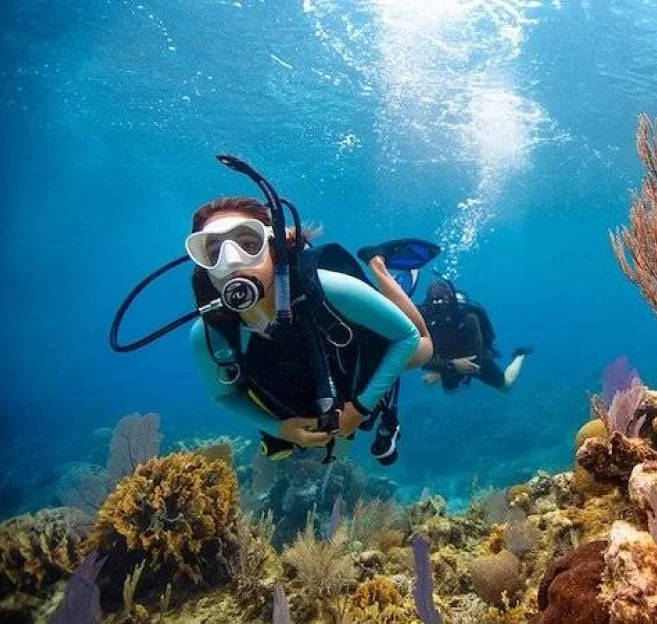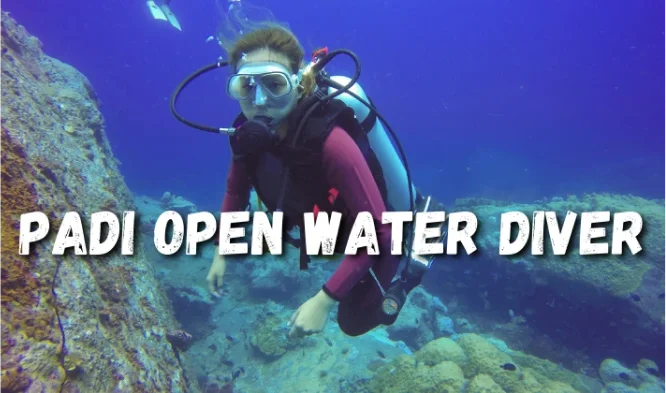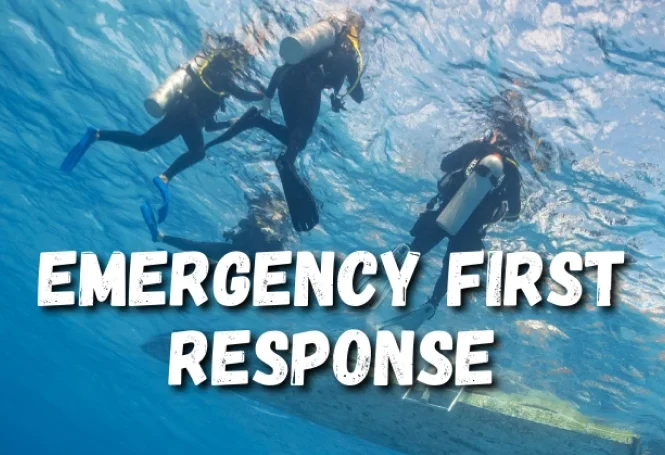Bali Diving Course
 1.webp)

Bali Diving Course: Learn to Dive in the Beautiful Waters of Bali, Indonesia
Whether You're a beginner or an experienced diver. For those who are new to diving in, or looking to improve their skills, Bali offers a range of diving courses to suit all levels and interests.
What Bali diving courses are available ?Bali has friendly underwater conditions, which allow the performance of all types of diving courses for you. Whether you are looking for PADI Open Water Diver course or the more advanced courses, any dive locations in Bali will provide a safe environment for teaching and learning.
The Bali diving courses available:
- PADI Open Water Diver
- PADI Advanced Open Water Diver
- PADI Rescue Diver
and more.
The theory of each of the diving course with PADI can be conducted online with PADI E-Learning. Feel free to choose your diving course on the PADI E-Learning website ?and select Neptune Scuba Diving as your dive center. Now let's learn more about each and every course that available:
PADI Open Water Diver
PADI Open Water Course is the starting point for those who want to learn how to dive. It is a comprehensive course that covers all the basic skills and knowledge required to become an adequately certified diver. The course typically takes three days to complete, encompassing theory and practical sessions. The first day involves a combination of pool training and classroom instruction, while the second and third days focus on open-water diving. Upon finishing PADI Open Water Course, you can dive to a maximum depth of 18 meters / 59 feet. During PADI Open Water Course, divers will conduct four open water dives. Each dive is concentrated on mastering the necessary scuba diving skills, and generally, the last part of the dive allows for some underwater exploration. The open water divers of this course are usually conducted in two of the most popular dive spots: Padang Bai and Tulamben.
Book your PADI Open Water Diver course
PADI Advanced Open Water Diver
PADI Advanced Open Water Course is designed for divers who have already completed the PADI Open Water Course and want to continue their diving education. The advanced course covers a range of advanced diving skills and techniques, typically completed over two days of open-water diving. During the PADI Advanced Open Water course, divers complete a total of five dives, with each dive specializing in a different skill or technique. Of the five specialty dives, two are mandatory: Deep Diver and Underwater Navigation. The diver can choose the other three specialty dives depending on what the dive center provides, but typically, they are:
- Fish Identification
- Peak Performance Buoyancy
- Wreck Diver
- Drift Diver
- Night Diver
Depending upon the specialties chosen for this course, your dive locations in Bali may vary, but you will receive training under the right conditions. Upon completion, you can dive to a maximum depth of 40 meters, the maximum depth permitted for recreational diving.
Book your PADI Advanced Open Water Diver course.webp)
PADI Rescue Diver
The PADI Rescue Diver is a comprehensive two-day course that teaches divers how to handle various emergencies that may arise while diving in. The course is designed to develop the skills and knowledge necessary to prevent, recognize, as well as effectively respond to in-water problems and emergencies. In short, the PADI Rescue Diver course teaches divers how to recognize and assist anxious or panic divers. How to approach without risking their own lives while trying to help in the difficult moments. The first day is concentrated on practicing skills in confined water (swimming pool). In contrast, the second day is concentrated on practicing the same skills more in open water for a more realistic simulation under the supervision of a professional PADI Instructor and a buddy role-playing the victim. The PADI Rescue Diver has two prerequisites: divers must first be PADI Advanced Open Water Diver certified as well as Emergency First Response.
Book your PADI Rescue Diver course.webp)
Emergency First Response
This course teaches participants how to respond effectively to emergencies, whether in or out of the water. The course covers a range of topics related to first aid and CPR and is designed for both divers and non-divers. The EFR course typically involves both classroom sessions and hands-on training exercises and covers the following topics:
1. Primary Care (CPR): Participants learn how to perform CPR and first aid on adults, children, and infants, as well as how to recognize and respond to pediatric emergencies, also use barrier devices to minimize the risk of disease transmission.
2. Secondary Care (First Aid): The course covers a wide range of first aid techniques, including wound care, management of fractures and dislocations, and the management of shock, choking, and other medical emergencies.
3. Automated External Defibrillation (AED): Participants receive training on the use of automated external defibrillators, including how to assess a patient properly, select the appropriate pads, and perform defibrillation.
Book your Emergency First Response course
PADI Divemaster
The PADI Divemaster course is the first step in the professional diving career ladder, aimed at developing the skills and knowledge necessary to become a dive professional. It typically takes 4-5 weeks long, although some dive centers advertise it for two weeks. It's both challenging and rewarding, covering a wide range of diving and diving leadership topics. During this course, divemaster candidates learn the diving business as they conduct an estimated 60 dives if they plan to become a PADI Instructor. The PADI Divemaster course typically involves both classroom sessions and in-water training exercises while covering topics such as:
1. Dive Theory: Participants receive training on a range of dive-related topics, including physics, physiology, dive equipment, dive planning, and dive environmental management.
2. Dive Skills: The course covers a wide range of dive skills, including dive equipment set-up, dive briefings, dive supervision, and dive leadership. Participants also receive training on assisting instructors with student divers during PADI courses.
3. Risk Management and Supervision: The course covers dive risk management strategies, including dive site selection, dive group management, and dive buddy responsibilities. Participants also learn how to supervise divers in various diving environments effectively.
4. Business of Diving: Participants receive training on the business aspects of diving, including dive center management, marketing, customer service, and dive industry regulations.
Book your PADI Divemaster course.webp)
Frequently Asked Questions
Everything you need to know about Bali dive shops. Can't find the answer you're looking for? Please chat to our friendly team.
See More FAQsWhat types of diving courses are available in Bali?
What is the minimum age requirement for taking a diving course in Bali?
How long does a typical diving course in Bali take?
Do I need any prior diving experience to take a diving course in Bali?
How much does a diving course in Bali cost?
What is the best time of year for diving in Bali?
Are there any health requirements or restrictions for taking a diving course in Bali?
Do I need to bring my own diving equipment for the course?
What languages are the diving courses taught in?
Are there any specific safety guidelines or procedures to follow during a diving course in Bali?
Join more than 1,000 monthly guests from all around the world visiting us for Scuba Diving, PADI Courses, Snorkeling, and Freediving.
Email or contact us by WhatsApp. We reply promptly between 9AM and 5PM, every day.